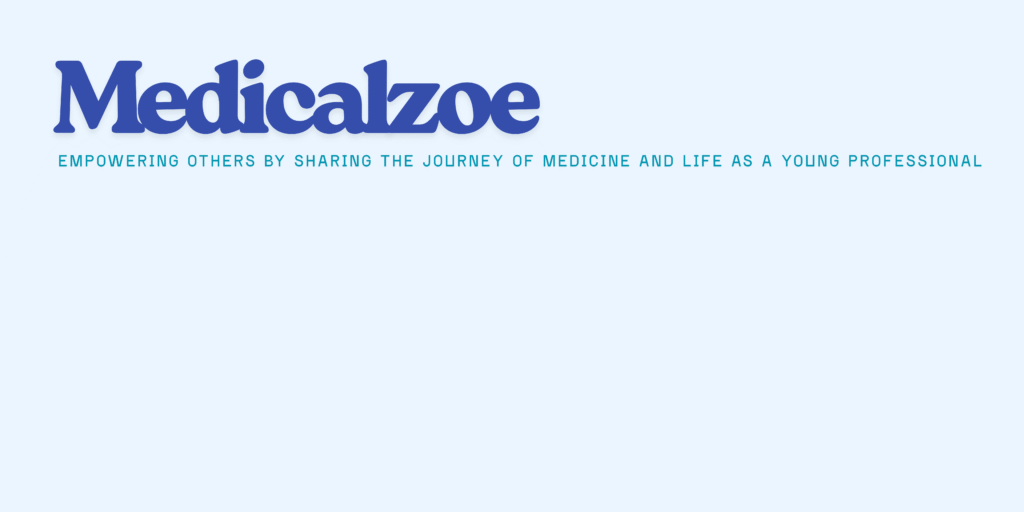
One of the important things to understand as an aspiring medic, is the what the qualities of the best doctors are. This underpins all the extracurricular activities that you will undertake in preparation for medical school!
I have listed the 5 qualities that are mentioned the most during my conversations with Doctors.
For more blog posts just like this check out this page!
The qualities I mention are also included in this Medical schools council resource:
Don’t you worry, you will also be given some top tips on how to develop them!
Are you ready? Lets go.
1. Emotional intelligence
Empathy is a major buzzword when it comes to the qualities of the best doctors. That said, it really does play a massive role in getting patients to open up to you and allow you to treat them most effectively.
What do the doctors think about empathy?
“I think that you can never truly know what it is like to be in someone else’s shoes. The important thing is empathy. Doctors and all people really, make judgements based on assumptions. The secret to being a doctor is not judging. The patient’s problem is a big deal to them to have had to come into the hospital, look at it through their eyes.”

So how can you develop this?
Get involved in your community! Look around for what fundraising or volunteering is going on that you could help with.
Remember this isn’t about benefiting you it’s about learning to serve the needs of others! Any opportunity is a good opportunity.
Look around you in your house, street or school. Who needs extra help? How could you lend an ear to?
2. Adaptivity
Being able to keep up with the changes around you is one of the qualities of the best doctors. From research advancements to new patients, you need to be able to adapt.
Flexible doctors are an asset to where they work for a few reasons. Firstly, they can fill gaps and stretch themselves when needed. Secondly, they can care for patients better if they can adapt to changes in the patient’s condition.
What do our Doctors say?
“Being a doctor is a bit like being an Owl. Owls have different parts of their existence. They have their night hunting selves and then building and nesting side of themselves. In Medicine, you have to be very adaptive and have different skills, much like that.”
How can you develop adaptivness?
There are many ways you can develop this skill. Likely, you are already doing it! Try something that challenges you, where you will have to make quick decisions and change your course of action.
Trying anything new will help with this!
3. Being a Team player
Doctors are just people. Every doctor is dependent on their team and the team is dependent on the doctor. There is no way that you can work as an individual, every member of the team has something very valuable to contribute.
Here is what a doctor said when we asked them about teamwork:
“ There is no hierarchy, we work together. We are a team, it’s cog and wheel, we can’t work without them (nurses and HCP’s), they cannot work without us. Together, we see the patient and treat them. We entered into the same notes and I couldn’t do my job without them.”

How can you develop teamwork?
To state the obvious, join a team!! It doesn’t matter what you do in that team as long as you are all working together towards a goal.
This could be sports teams, a competition team, or anything else!
4. Reliable
Doctors hold a great deal of responsibility. They need to be reliable for their team, the profession but most importantly to their patients.
It is so important to hold yourself to a high standard and ensure that your patients and their families can trust you.
What do our doctors say about reliability:
“My job has taught me a huge amount of people. It’s a huge privilege to be able to see people at their most vulnerable, and I think there is something I have learned about how much trust patients and their family put in us as Doctors. They trust us to be able to care for them and their children, the most important people in their life. They trust our dedication, honesty and ability.”
So how can you develop reliability?
Try getting a part-time job! It’s difficult in this situation with Lockdown, that said the supermarkets are still open and most are hiring.
However, it is up to you to make sure you manage risk effectively and keep yourself and your loved ones safe.
Perhaps consider a job doing some tutoring with younger students! That way you build responsibility to both the student and the parents
5. Resilience
Being a doctor is not for the faint-hearted.
You have to be ready to experience emotional and physical trauma. The hours are long and hard and it is a lifestyle rather than a day job.
Doctors all go through a difficult time and one of the qualities of the best doctors is that they pick themselves up again. Developing resilience to challenges is so important for doctors to keep doing their job effectively and not crack under pressure.
That said, all doctors need help sometimes. Resilience can mean getting the right support to help you keep going.

What do the doctors think about resilience?
“My job is highly emotive, you deal with people at the extremes of their emotions, sometimes the job is challenging, sometimes you lose patients. We work bloody hard, to put it frankly. I think people think that we are well paid, we are very poorly paid if you work out what we earn per hour if you divide up the hours we work it’s less than minimum wage.”
As you can see, it’s so important to have a resilient mindset. So, how can you develop one?
Again, it comes back to doing things that stretch you and challenge you. Our A-levels are a great example of something that requires resilience. However, all aspiring medics do A-levels.
What challenges have you faced alongside school that have tested your resilience?
Be honest about the things that test you and keep pushing yourself.
I hope this blog post has given you some insight into why these skills are improtant and how you can make sure that you develop them.
Remember to join the email list for exclusive content and tips and follow me on Instagram for more advice!


Leave a Reply